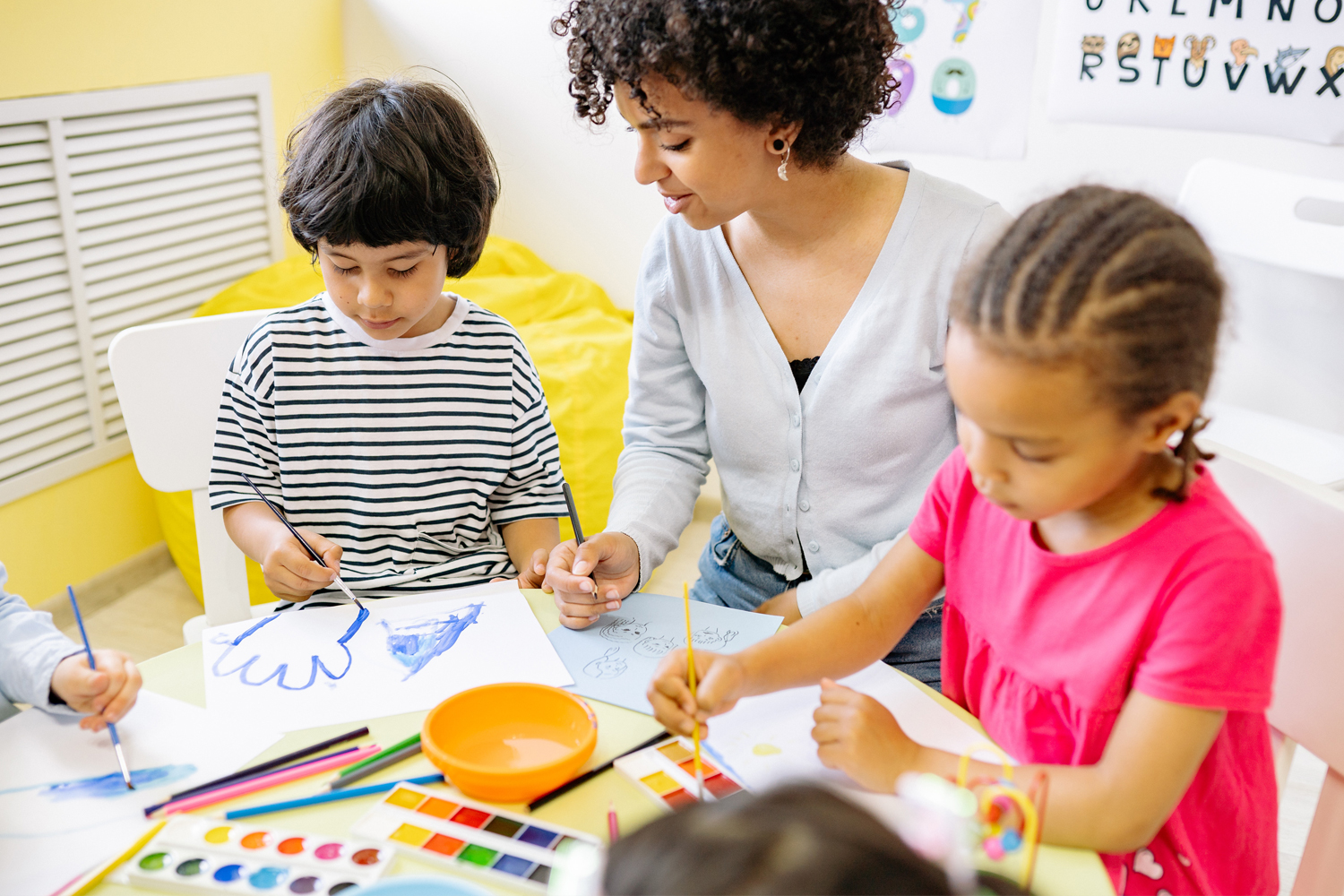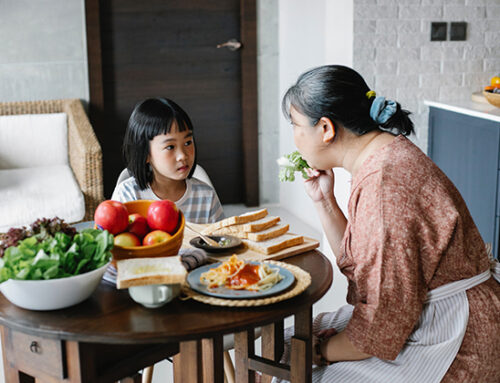Play is about enjoyment and having fun! Play is also an important developmental skill that allows children to learn about the world through language and strengthen problem-solving skills. The act of playing gives children experiences, which are the foundation for understanding concepts and language. Understanding language must occur before children are ready to express themselves through gestures, words, or assistive and augmentative communication.
Find an activity that is engaging for your child, pick a new word, and try the following strategies during play to strengthen your child’s understanding of language:
- Repeat a new word or sign multiple times during your turn: Using the same word 3-5 times helps kids learn the word. For example, water play is highly motivating for many kids. Take the word “pour” and use it when it’s your turn to play.
- Pair words with signs or gestures: If you know the sign for words use those, otherwise, you can improvise by moving your hand in a way that helps you communicate the word. Use the word “pour” and move your hand around like you are stirring an imaginary mixture, making your movements big and animated.
- Talk about what’s happening in the moment: Label what you are doing with a word or short phrase while you are doing it. By talking about what is going on, the connection between the word and the action is clear. Give your child a turn to try the action, too, and label the action when she does it.
- Use short phrases: Using a short phrase can help children understand what you are saying: “Let’s pour the water” and “Ready to pour?” You can stress the target word and make it fun!
- Review new words outside of play: Apply the word to other contexts, for example, during a meal you can say “Time to pour the juice” to help children understand that the word can be used in different environments.
Depending on what your child is ready for, she might show understanding through engagement, imitation, with a gesture or a word, or by saying a short phrase. Remember the strategies above, focus on teaching concepts, and target understanding of new words through play. Since experience and understanding precede expression of words and gestures, it is important not to complete this exercise with the expectation that your child will say the target. Try to avoid saying “say pour” as this puts pressure on kids, and they might not be ready for this step. Instead, model the word for them and keep it fun for both of you!
References:
Weitzman, Elaine. (2017). It Takes Two to Talk: A Practical Guide for Parents of Children with Language Delays (5th edition). Tronto, Ontario: The Hanen Center.

Blue Bird Day fosters socialization, sensory regulation, and pre-academic learning in children ages 2-7 years in therapeutic rotations that simulate preschool and kindergarten settings. Our compassionate therapists practice a relationship-based and family-centered approach, provide parent training, and collaborate on goals and individualized intensive treatment plans for your child.
We believe in a collaborative and multi-disciplinary team approach to therapy. A team of occupational therapists, speech-language pathologists, dietitians, developmental therapists, behavioral therapists, physical therapists, and therapeutic assistants are created for each child to ensure child and family are fully supported and the best possible results are achieved.
Options for individualized, group and virtual therapy sessions are available as well.
Want to learn more or you have a specific question? Feel free to connect with us here!



